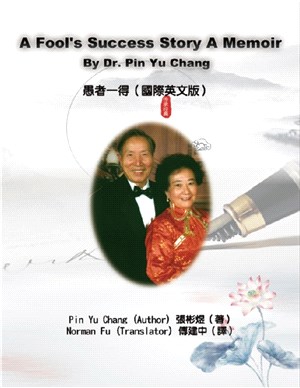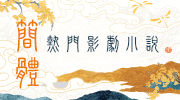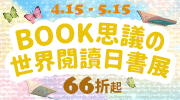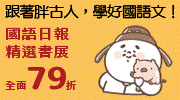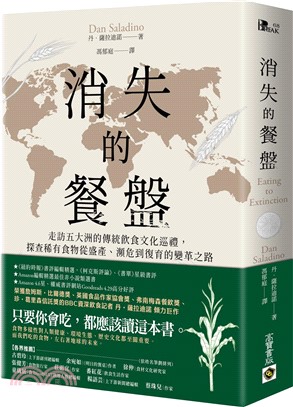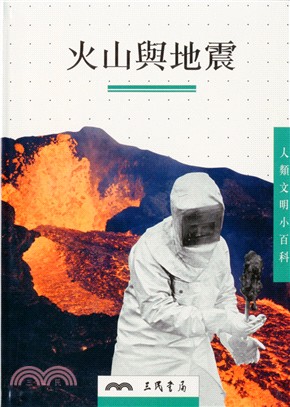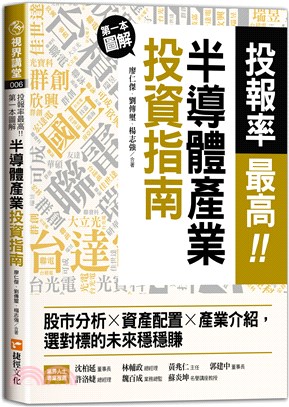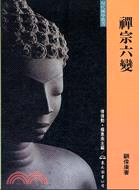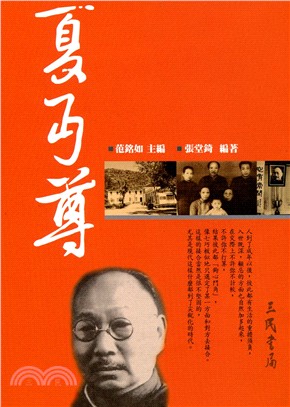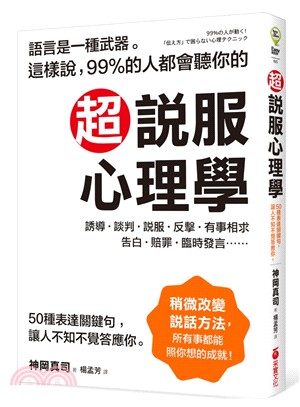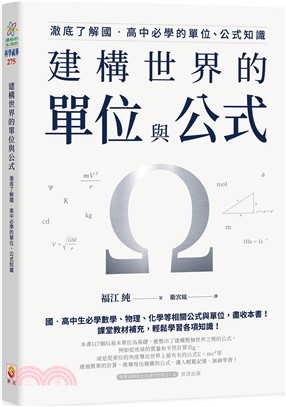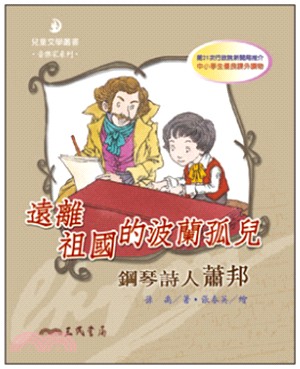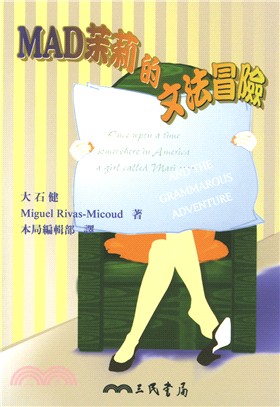愚者一得:張彬煜博士回憶錄(國際英文版)
- ISBN13:9781647840976
- 出版社:漢世紀數位文化EHGBooks
- 作者:張彬煜
- 譯者:傅建中
- 裝訂:平裝
- 規格:22.9cm*15.2cm*0.7cm (高/寬/厚)
- 出版日:2022/12/01
再享89折,單本省下87元
商品簡介
四十年前,張彬煜博士已經是美國華盛頓特區著名的百萬富翁。他出身軍旅,有著強大的自制力與意志力,且能文能武,熟讀孫子兵法,巧妙地將這本祖傳經典運用到工作和商業投資中。在美國功利社會下,他保護自己的權利,總是以出人意料的方式獲勝。根據當年華府知名專欄作家吳崇蘭女士的說法:「四個例子體現張彬煜的能力:1. 1970 年代,張彬煜用 10,000 多美元買了 3 英畝的土地;五年後以 665,000 美元的價格賣掉。2. 張彬煜在密歇根大學安娜堡分校讀書時,一年獲得了四項獎學金。獎學金總額超過了一名副教授的年薪。3. 張彬煜畢業後的第一份工作是直接在一家美國公司擔任技術副總裁。4. 無須申請,無須考試,張彬煜當年直接拿到了綠卡;兩年後即宣誓成為美國公民,並免除五年居住要求。」中國知識分子通常有這樣的心態:“萬般皆下品,唯有讀書高”。他們認為談論金錢很俗氣,因此常常難以發揮自身融入以資本主義為主流的美國社會;因此西方漢學家普遍認為,這就是為什麼中國的知識分子從來沒有成為統治階級中掌握政治力量的原因。但張彬煜博士並非如此,透過他的回憶錄,走入時光的隧道,了解當年來自臺灣兩袖清風的軍旅人員,是如何掌握時機,在當年美國經濟蒸蒸日上中,以中國人的“大智若愚”賺得自己的人生,成為美國人心目中的“成功人士”。
★Foreword: Dr. Pin Yu Chang★
I am dumb. My whole life has been mediocre, not really worth talking about. I have never planned to write a memoir or an autobiography. However, more than ten years ago, senior columnist Ms. Wu Chong-lan(吳崇蘭 ) wrote in her Washington Profiles a feature about me. She noted that I had many experiences that could help others to attain happiness and good health. She said I looked dumb, but actually very wise only apparently nit-witted. She mentioned some concrete examples:
1. In the 1970’s I bought three acres of land with a little over 10,000 dollars.
Five years later, I sold it for 665,000 dollars.
2. When I was a student at the University of Michigan, Ann Arbor, one year I got four scholarships. The total value of the scholarships was more than the annual salary of an associate professor.
3. After graduation my first job was as a vice president for technology of a small U. S. company.
4. Without application or examination I obtained my green card. Two years later I took oath to become an American citizen with the five-year residence requirement waived.
After her article appeared in the Washington Chinese News, many people wouldn’t believe it. There were discussions in different groups. I was invited to give talks. Many Chinese newspapers invited me to contribute articles. My writings were not detailed enough. Many friends and the editors suggested that I write a memoir or an autobiography. They said that readers would enjoy reading it, and that would be beneficial for the people.
Many old friends also said, you consider yourself dumb and lazy. We think you are honest, and you know about yourself. But we don’t understand why beginning with elementary school all the way through second year senior high, you were always first in the class and served as class leader. At the graduate school of the University of Michigan, you were a straight A student and received the 1969 Outstanding Achievement Award.
In 1967 the American Esso Oil company (Exxon-Mobile now) had six oil tankers built in Japan and Germany respectively, each with a displacement of 250,000 tons. Before oil was loaded, the tankers’ structure went bad. At that time Taiwan’s new shipbuilding corp. was not planned yet. The island’s shipbuilding industry was pretty backward. Why Esso invited a young man like you who had never worked in highly developed shipbuilding countries such as Japan, the U. S. and European countries to take on the task of improving the design and manufacturing of the oil tankers? We know that you were quite successful, but we didn’t know how you got the job.
In fact, the year when a vice president of Esso called me to say that he wanted me to be responsible for the task, I never thought that they would ask me. I was happy, but didn’t know why they asked me. I was happy because I could do a very good job and was willing to do it. What I couldn’t understand was that in those days there were many ship design specialists, more than a thousand in New York alone. Throughout the world in countries like the U. S., the U. K., France, Germany, Japan, Italy, Norway and Korea there were at least more than ten thousand shipbuilding specialists. In the U. S. there were MIT, U.C., Berkeley, University of Michigan which had internationally known shipbuilding departments and professors. The U. K., France, Japan, Norway and Germany had shipbuilding departments and well-known professors too.
The design was originally done jointly by three most famous design firms in New York It was also approved by the American Bureau of Shipping and shipping bureaus of the U. K., Germany, and Japan. They unanimously considered the design good. The shipbuilding companies and shipbuilding circles in the world agreed that the two shipbuilders in Japan and Germany were first rate. They never expected any problem They believed that the six oil tankers would be successfully built.
They also believed that after the success of the six oil tankers, the shipbuilders would follow suit. At the time the largest oil tanker had only a 50,000-tonnage displacement. A 250,000-tonnage oil tanker would cut down the shipping cost by half per ton. They never expected such a serious structural problem. But the original designers and shipbuilders were the best in the world at the time. No one ever pointed out the errors in the designs and the ways to improve them.
Esso’s vice president Robert Taylor (same name as Hollywood’s handsome movie star) in charge of oil tankers in New York told me that they originally planned to get the design team, shipbuilders and professors of shipbuilding departments of internationally renowned universities to form a joint committee to solve the problem. But he added, Esso’s chairman of the board disagreed. The chairman said, “the design firms and the shipbuilders we engaged were the best in the world, and the design was in accordance with the methods and specifications of the Bureau of Shipping of the U. S., the U. K., Japan and Germany. They were not wrong. What was wrong was their use of old methods and specifications. It would not work if you get the previous people to use the old methods to improve the design. You need to find young people who have learned the new methods to help solve the problem. Mr.
Taylor said to me, “You’re a newly minted Ph. D. in shipbuilding and a winner of the Outstanding Achievement Award of the University of Michigan (1966). That’s why we want to engage you.
I did very well in this task. After improving the design, the oil tankers were smooth-sailing. As a result, I had offers from many companies. The new methods I utilized have been used internationally since then.
My friends after hearing my explanation asked me to put it down in writing.
In 2008 Vice Admiral Wang Xian-deng (王先登 ), founder of CNCT and China Shipbuilding Corp. passed away. My former superiors and schoolmates in the Nationalist Chinese navy asked me to write an article in memory of him.
Vice Admiral Wang’s contributions to CNCT, the Chinese navy and Taiwan’s shipbuilding industry were tremendous. I am one of his students and beneficiaries. Many of his deeds had something to do with me. My tribute and memorial piece was published in the Chinese-Foreign magazine (中外雜誌 ) in December 2008 (No. 6, Vol. 84). The response was enthusiastic. Both the National Historical Archive and the Naval Historical Museum wanted to keep my article for good. They also wanted to keep personal data about me. The contributions of an educator, besides the hundreds and thousands of students he taught, also include the performance of his students. Both the Archive and the Museum wanted me to write something for public exhibit. All my schoolmates said that I could no longer be a loafer any more.
Hence, I have started to write this memoir.
★Preface: Dr. P.Y. Chang Always Ahead of Others / Norman Fu, former U. S. Bureau Chief of The China Times ★
Forty years ago, I already heard about the famous P. Y. Chang. At that time I was working and struggling to make a living, but Dr. Chang was already a well-known millionaire in the Washington, D. C. area. People called him millionaire Chang. I was very curious about him. My late wife Rowena Fu and Mrs. Frances Chang were both members of the Tunghsin Choral Society. One time we were invited to his home. That’s how I got to know him. I found out that unlike the rich Chinese, who live in mansions and drive expensive cars, they were just like the ordinary Chinese having a simple home and leading a simple life. This whetted my curiosity even more, and my respect for him welled up in my heart.
Now his memoir A Fool’s Success Story is going to press, he’s kind enough to ask me to write a few words. Therefore, I had the privilege of reading his memoir before it’s printed. Now I realize why he has been always ahead of others, having had a successful career and accumulated wealth. The following is what I have learned after reading his memoir:
Chinese intellectuals have the mentality that “all other pursuits are worthless, only the study of books ranks first and foremost.” They consider money stinking. As a result, they loathe labor, and live their poor but principled life. They consider themselves high-minded, or they join the bureaucracy and become dependents of the power elites. If they are clean and not corrupt, when they lose their official jobs, they don’t have the means to be independent financially. According to Western sinologists, this is the reason why China’s intelligentsia has never been a counterbalancing force to the ruling class. P. Y. Chang is different from traditional Chinese intellectuals. He advocates that “if you don’t seek fame and profit, you must be mediocre.” He also says that “to die of poverty is criminal.” He’s certainly an avantgarde against traditional thinking. He is the one that introduces this new thinking and brings some fresh air. Hence, when he worked in U. S. agencies and companies, he insisted on his right to have a side line. His advice to the talented men and women: You must know how to manage money and make money. His contrarian way of thinking and behavior demands special attention.
As a matter of fact, the standard by which the Americans judge a person’s success or failure is usually his wealth. The way to create wealth in America is by way of one’s intelligence and wisdom, billionaires like Bill Gates of Microsoft, Steve Jobs of Apple and Mark Zuckerberg of Facebook are all like that. That’s why the Americans attach great importance to intellectual property rights. The Chinese never had such a concept.
Although P. Y. Chang was originally a military man, he is adept in both pen and sword. He has mastered The Art of War by Sun Zi He adopts this ancestral classic skillfully and applies it to his job and business investments. In a foreign environment he protects his rights and always wins by way of surprise moves. We can see this everywhere in his memoir. Not everyone can do as well as he does. Obviously, he is very smart and has high IQ. He always says he’s dumb. That’s his self-effacement. In fact, a man of great wisdom often seems nitwitted. His talent has exhibited itself in speech contests and karaoke singing as well. He was a speech champion and won a standing ovation for his karaoke singing. He’s actually a man hiding his talent without showing it.
Speaking of his capability in both pen and sword, P. Y. Chang is a good poet. His traditional Chinese poems are well written His “Collected Poems by P. Y. Chang” is my favorite reading.
When he was 70, his relatives and friends threw a birthday party in his honor. I was invited to make a short speech on that occasion. In my remarks I cited a poem by a famous general and strategist Cao Cao (曹操 )of the Eastern Han dynasty. The poem written by Cao Cao in his twilight years reads in part: “Like an old horse transporting a heavy load of timber, my destination is hundreds of miles away.” I wished P. Y. Chang just like that horse with a long journey ahead. When it was
P. Y’s turn to respond, he quoted the American expression, “ I’ll go the extra mile for the rest of my life.” Chinese and American diction, a perfect union, his witticism showed itself brilliantly and he got a round of applause. I have nothing but admiration for him. To this day, I can’t forget that remarkable evening. More than a decade has since passed, P. Y. Chang is still in excellent health, old but vigorous. He has gone not just the extra mile, but thousands of miles. No wonder he is always ahead of others. We look up to him and follow him forever.
作者簡介
Dr. P. Y. Chang’s Biographical Data:
★Education★
Graduate of Chinese Naval College of Technology (CNCT), 1952, Taiwan Graduate of Naval Steel Materials Senior Class, Taiwan (1958) Master’s degree in engineering, University of California, Berkeley, U.S. A. (1965) Ph. D. in shipbuilding engineering, University of Michigan, Ann Arbor, U.S. A. (1967)
★Work Experiences★
Manager, system engineering department and deputy director of ship hulls structure department, Designers and Planners, Inc. U. S. A. (1982-95) Deputy director, Department of Fluid Dynamics and Solid State Dynamics, Hydranautics, Inc. (1975-82) Vice President, COM/CODE Corporation, (1969-72) Instructor, University of Michigan, Ann Arbor, U.S.A. (1964-65)
Research Assistant, University of California, Berkeley, CA (1961-64) Naval Design Center and Section Chief of Ship Hulls Section, and Commanding Officer of the Reserve Officers (1957-61), Taiwan
Liaison Officer at ROC’s Navy Headquarters in charge of engineering projects with U. S. aid. (1954-57) Deputy Director, Ship Hull Factory, Third Naval Ship Yard, Deputy Engineer, Machine Building Factory, Commander Officer the Apprentices, editor-in-chief of Chunli Newsletter
★Special Qualifications★
Senior professional engineer’s license in the State of Virginia, broker’s license in the State of Maryland, U. S. A.
★Academic Activities★
U. S. delegate to the International Ship and Offshore Structure Congress (ISSC) and a member of the ISSC Congress (1973-1995)
目次
★Contents★
Foreword: A memoir at the Request of the Readers
Preface: Dr. P.Y. Chang Always Ahead of Others
His Secrets
Dr. P. Y. Chang’s Biographical Data
1.Honesty Makes a Multi-Billionaire
2.It’s Criminal to Die of Poverty
3.How to Build An Independent Economic Foundation
4.Advice to a Genius and a Beauty
5.A Discourse on The Art of War
6.Sharing My Experience with Longevity
7.Know Thyself and Know the Enemy, Win a Hundred Battles without Defeat
8.How to Promote Yourself
9.How to Turn a Paper Tiger into a Real Lively Tiger
10. You Do Not Have Because You Do Not Ask
11. The Chinese Marine Corps and Me
12. Rectifying a Wrong Case, Saving Schoolmate’s life
13 .Correcting a False Accusation, the Truth of Saving a Schoomate’s Life
14. God Wants You to be Rich
15. Optimism Is the Mother of Success
16. In Memoriam
17. On Fortune-telling, Remembrance of My Parents
18. Winning a Contract for China Shipbuilding Corp.
19. As Commanding Officer of the Reserve Officers
20. The Way to Success
21. The Knack to Make Money
22. A Beneficiary of The Art of War Discusses the Strategies of Sun Zi
23. Han Yu Did Not Reject Buddhism and Taoism
24. Family Burden, It’s No Burden At All
25. How to Prevent Discrimination and Unfairness in Employment
26. Knowing Discontentment Brings Eternal Happiness
27. No Weal Without Woe
28. On The Art of War Again
29. Thank God You Are Not Beautiful
30. Save a Professor of National Taiwan University
31. Drive a Duck onto a Perch
32. Memories of My Days in America As a Naval Officer
33. Protect Your Assets Before Abortive Litigation
34. Everybody Needs to Have a Sideline, Which Makes Money Easily
35. A Pioneer in Taiwan’s Shipbuilding
36. We All Need to Participate in American Political Activities
主題書展
更多主題書展
更多書展本週66折
您曾經瀏覽過的商品
購物須知
為了保護您的權益,「三民網路書店」提供會員七日商品鑑賞期(收到商品為起始日)。
若要辦理退貨,請在商品鑑賞期內寄回,且商品必須是全新狀態與完整包裝(商品、附件、發票、隨貨贈品等)否則恕不接受退貨。




